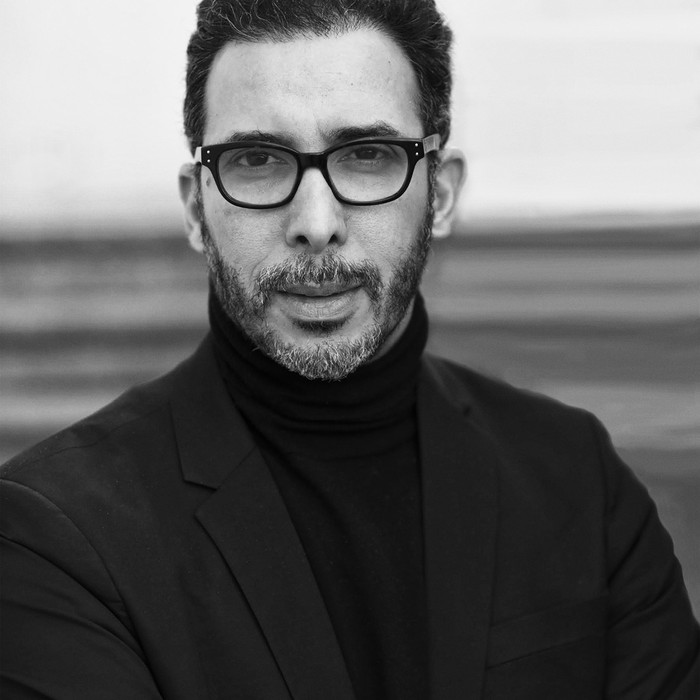
Visiting artist professor
2025 - 2026
Mounir Fatmi
Born in 1970 in Tanger (Morocco)
Mounir Fatmi was born in Tangier, Morocco, in 1970. When he was four, his family moved to Casablanca. At seventeen, he left for Rome, where he enrolled in the free life drawing and engraving classes at the Academy of Fine Arts, then at the School of Fine Arts in Casablanca, and finally at the Rijksakademie in Amsterdam.
His childhood near the f lea market of Casabarata, a working-class neighbourhood of Tangier, would prove a key source of inspiration for his imagination. There, among the rubbish and discarded objects, he discovered a first kind of museum: a museum of the ephemeral and the ruined. This vision also serves as a metaphor and expresses the essential aspects of his work. Influenced by the idea of dead media and the collapse of industrial and consumerist civilisation, he developed a reflection on the status of the artwork, between archive and archaeology.
He uses obsolete materials such as antenna cables, old typewriters and VHS cassettes, and works on the notion of experimental archaeology by examining the role of the artist in a society in crisis. He plays on this society's codes and precepts through the prism of the trinity of Language, Architecture and Machine. In this way, he probes the limits of memory, language and communication, while reflecting on obsolescent materials and their uncertain futures.
Mounir Fatmi's artistic research constitutes a reflection on the history of technologies and their influence on popular culture. His works should therefore be seen as media archives in the making. Although they mark key moments in contemporary history, these technical materials also question the transfer of knowledge and the suggestive power of images, and critique the illusory mechanisms that bind us to technology and ideologies.
Since 2000, Mounir Fatmi has exhibited at major institutions such as the Venice Biennale, the Centre Pompidou in Paris, the Musée Picasso in Vallauris, the Brooklyn Museum in New York, the Victoria & Albert Museum in London and the Mori Art Museum in Tokyo. His awards include the Uriöt Prize, Amsterdam, the Grand Prix Léopold Sédar Senghor at the 7th Dakar Biennale in 2006, the Cairo Biennale Prize in 2010, and the Silver Plane Prize at the Altai Biennale, Moscow, in 2020.
During his stay at Le Fresnoy, Mounir Fatmi will produce an experimental video project, continuing his reflection on the gradual erasure of media and narratives. This video will question technological memory through fragmentary writing and a visual language inspired by both science fiction and documentary essays. Part artefact, part critical fiction, this project will specifically address the question of the image, its power and its ghosts.
